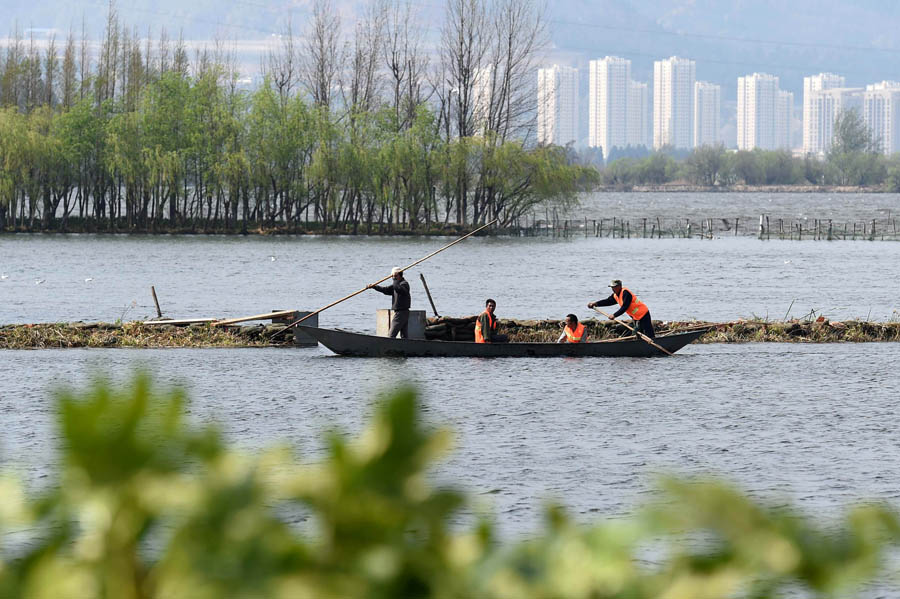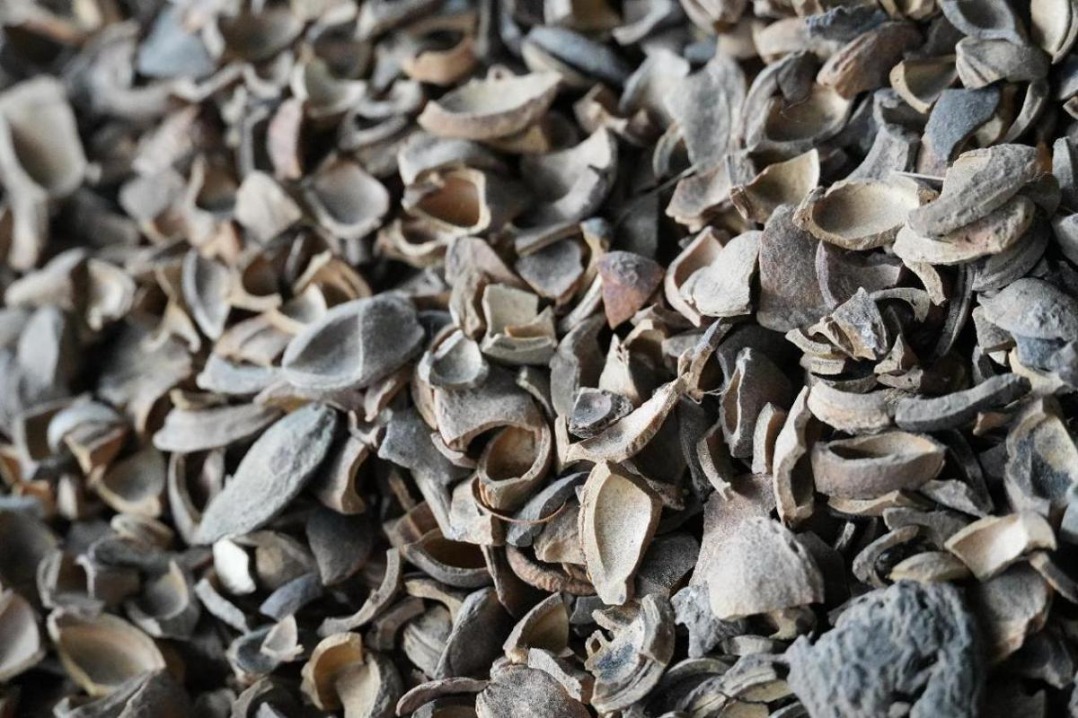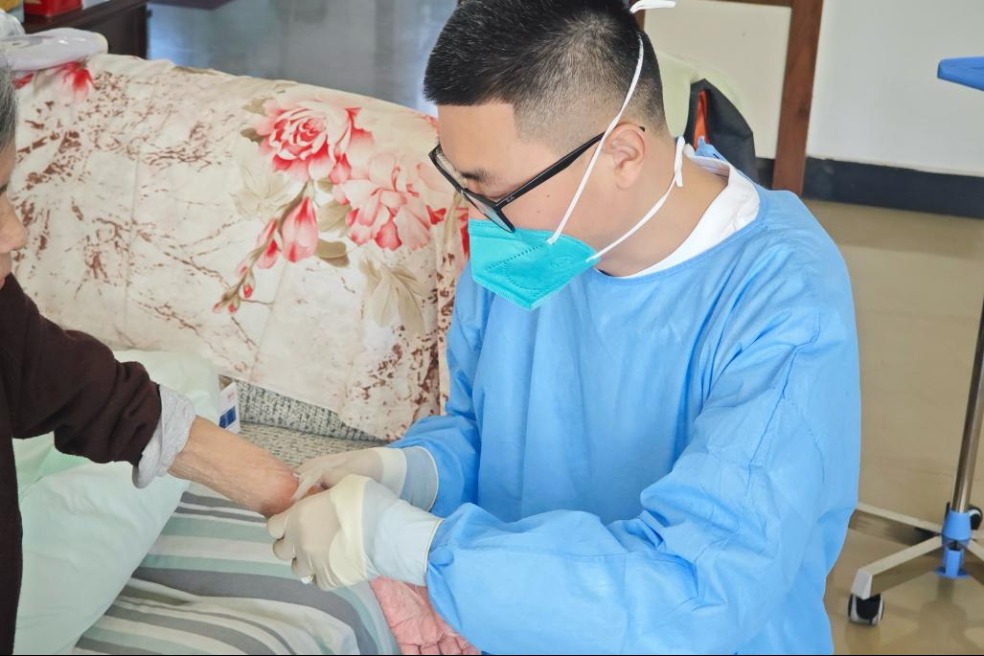Local heroes restore Dianchi Lake's water quality


Li Yunli, who has been cleaning up trash around Dianchi Lake in Kunming, the capital of Yunnan province, for more than three decades, noticed a significant improvement in the lake's water quality in recent years.
"The water has become clearer, the shores greener, and many fish species that disappeared before have returned," she said.
Dianchi, once dubbed a "pearl" of the Yunnan-Guizhou Plateau, became one of China's most polluted lakes in the 1990s due to the raw sewage generated during the city's rapid urbanization and industrialization in the 1980s.
"The lake was heavily polluted. Its water was murky and gave off a strong foul smell," said the 60-year-old, who used to be a fisher. "This really broke my and my fellow villagers' hearts, since we had lived by the lake for generations."
To protect their mother lake, the local village women volunteered to establish an all-female salvage team in 1988, using their fishing boats to remove the trash from the lake and the adjoining rivers and wetlands every day. At its peak, the team had more than 80 members.
The local government recognized their efforts and granted them subsidies. Later, the local sanitation company hired them.
More positive changes have occurred in the past decade, as Kunming has placed greater emphasis on treating its waters. In 2016, the lake bade farewell to water below Grade V quality, the lowest level in the national five-tier grading system for surface water. Since 2018, its water quality has stabilized at Grade IV, according to the city's Dianchi Lake administration bureau.
Li said that the citizens also gained environmental awareness during the process.
"In the past, the lake was filled with blue-green algae, household waste, unwanted furniture and dead animals such as chickens and dogs," she said. "Now, there are mainly dead water plants, dead twigs and withered leaves.
Yang Lanzhi, another team member, said she had done some other jobs before, but finally returned to the lake where she grew up because she wanted to spend her life with it.
Yang said her mother-in-law was also a team member. "She didn't tell me what to do, but her actions inspired me," she added.
- International Cartoon and Illustration Exhibition 2025 on a Community with a Shared Future for Mankind Call for Entries
- New guideline bolsters green inspections
- Flower industry pioneers profit from fields of dreams
- New route fosters trade connectivity
- China Internet Civilization Conference to be held in Anhui
- Peach pits becoming eco-friendly carbon alternative





































